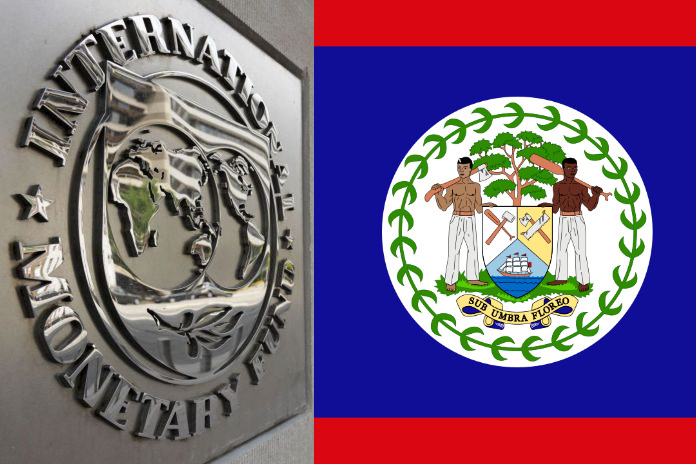USA / BELIZE – The executive board of the International Monetary Fund (IMF) concluded the Article IV consultation with Belize.
Economic activity has rebounded strongly from the pandemic. After contracting by 13.4 percent in 2020, real GDP expanded by 15.2 percent in 2021 and 12.1 percent in 2022, led by retail and wholesale trade, tourism, and business process outsourcing.
Real GDP growth is projected to slow to 2.4 percent in 2023 and 2 percent over the medium term as tourism returns to pre-pandemic levels.
Inflation increased from near zero in 2020 to 3.2 percent in 2021 and 6.3 percent in 2022, led by higher global energy and food prices despite measures to fix domestic diesel and regular gasoline prices at the pump since April 2022. Inflation is projected to fall to 4.1 percent in 2023 and 1.2 percent over the medium term, in line with the projected fall in commodity prices and global inflation.
Risks to the outlook remain tilted to the downside, including a sharp global slowdown, further increases in commodity prices, and climate-related disasters.
The fiscal position has strengthened significantly. Public debt declined from 101 percent of GDP in 2020 to 64 percent of GDP in 2022, driven by the debt for marine protection swap with The Nature Conservancy, a significant reduction in the fiscal deficit helped by expenditure restraint, strong growth, high inflation, and a discount in the Petrocaribe debt owed to Venezuela. The primary balance rose from –8.1 percent of GDP in FY2020 to 1.2 percent of GDP in FY2022 due to expenditure containment, including a temporary 10 percent cut in public sector wages and the suspension of wage increments in FY2021-22, and a strong recovery of revenue.
In an unchanged policies scenario, the primary balance is projected to remain at 1.2 percent of GDP over the medium term, with public debt declining to 53 percent of GDP by 2028. Public debt is assessed as sustainable over the medium term, although with still high near-term risks.
Executive board assessment
Executive directors agreed with the thrust of the staff appraisal. They welcomed the strong recovery in economic activity and the sharp reduction in public debt over the last two years. Directors highlighted that growth and inflation are projected to moderate and risks are to the downside, including from a sharp slowdown in advanced economies, further increases in commodity prices, and climate-related disasters. They underscored the importance of reforms to address constraints to long-term growth and enhance resilience to shocks.
Directors encouraged continued fiscal consolidation to further reduce public debt and ensure adequate buffers to respond to adverse shocks. They called for measures to enhance revenues and reprioritize expenditures, while increasing priority spending on infrastructure, targeted social programs, and crime prevention. Important measures include expanding the tax base, strengthening revenue administration, and pension reform.
Noting the need to further improve public financial management, directors recommended strengthening multi-year budget preparations, fiscal risk assessment, and public investment management. A few directors saw merit in adopting a fiscal responsibility law to enhance credibility of the fiscal framework.
Directors underscored that efforts to enhance growth should center on structural reforms to ease access to credit for micro, small, and medium-sized enterprises, enhance governance, and build resilience to climate change and related disasters. They highlighted that adopting a disaster resilience strategy, based on a consistent multi-year macro-fiscal framework, could help to unlock multilateral and donor funding to support these efforts.
Directors highlighted that implementing the planned fiscal consolidation and growth-enhancing structural reforms would also help to reduce external imbalances, improve the adequacy of reserves, and strengthen the currency peg. These measures should be supported by steps to limit central bank financing to the government.
Directors encouraged continued efforts to preserve financial stability and strengthen the AML/CFT framework. While noting the authorities’ effectiveness in resolving problem loans and strengthening domestic banks’ balance sheets after the pandemic, directors cautioned that risks remain, requiring continued vigilance. They encouraged the authorities to complete the update of the national assessment of money laundering/terrorism financing risks and the action plan, ahead of the mutual evaluation by the Caribbean financial action task force in November 2023.
Under Article IV of the IMF’s Articles of Agreement, the IMF holds bilateral discussions with members, usually every year. A staff team visits the country, collects economic and financial information, and discusses with officials the country’s economic developments and policies. On return to headquarters, the staff prepares a report, which forms the basis for discussion by the Executive Board.
At the conclusion of the discussion, the managing director, as chairman of the board, summarizes the views of executive directors, and this summary is transmitted to the country’s authorities.
An explanation of any qualifiers used in summings can be found here.
IMF Communications Department






